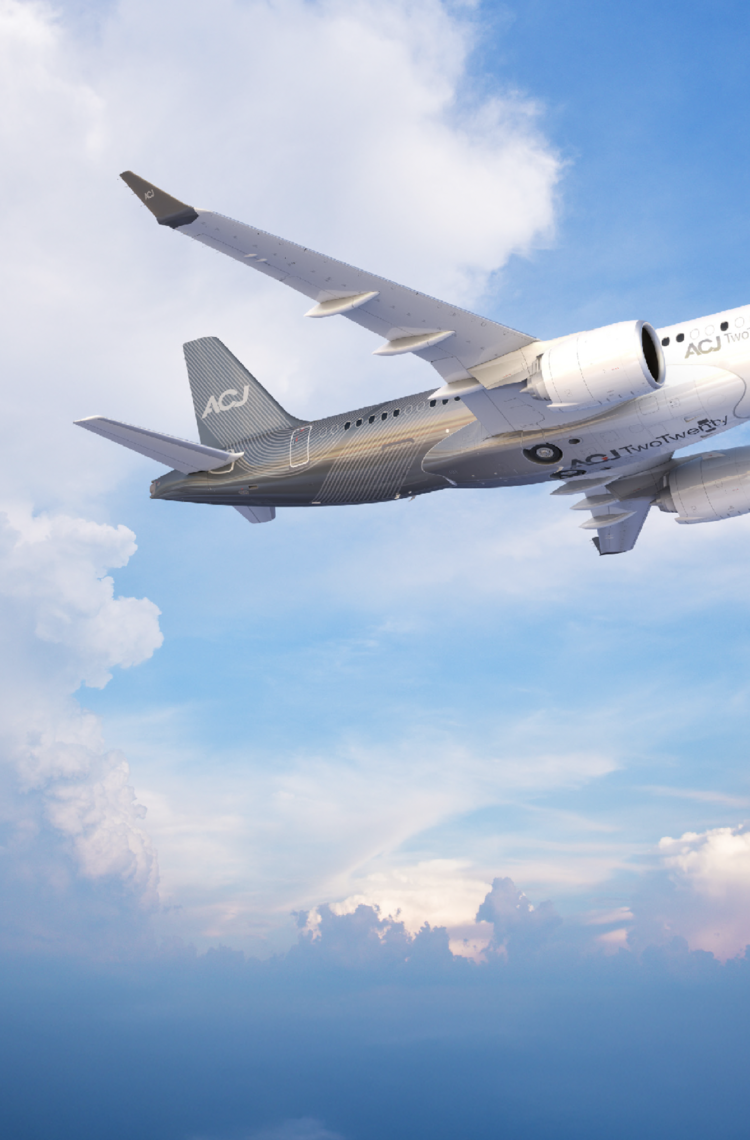Singapore, 30 Sept. 2025 – A new study1 commissioned by Airbus Corporate Jets (ACJ) reveals that corporate aviation is playing an increasingly strategic role for Asian based businesses. The report finds that the majority of organizations in Asia that already use business aviation are using it more to support their operational efficiency, which includes providing access to a broader group of employees. Many also use their business aircraft to support humanitarian causes.
The research was conducted amongst senior professionals based in China, Hong Kong and Singapore, comprising 34 senior executives at some of the largest corporations in Asia and 33 Asian based family offices, hedge funds and private equity firms with a combined AUM of US$141 billion.
The research reveals that 63% of their overall business air travel is now conducted via business aviation for the senior executives surveyed at Asian corporations. The corresponding figures for the private equity and hedge fund managers, and family offices surveyed are 69% and 69% respectively.
The findings indicate that business aviation is delivering substantial time savings made on journeys compared with using commercial airlines. Almost all (94%) Asian organizations surveyed estimate that they save between two and three hours when using a business aircraft rather than a commercial flight; and a further 5% say they save three hours or more. More than seven in ten (72%) also state that 25% or more of the business routes they make using corporate aircraft are not served by commercial flights.
“This research confirms what we’re seeing on the ground - that for many Asian organizations, business aviation isn’t just faster, it’s smarter. It allows professionals to recover valuable hours, work securely and make better use of their time in transit,” says Chadi Saade, President of Airbus Corporate Jets.
Looking ahead, over half (54%) of Asian organizations expect their use of business jets to increase by 50% - 75% over the next two years, while a further 9% anticipate their usage will rise between 75% - 100%.
Use of private aircraft correlates to Asian organizations’ growing international physical presence, with all (100%) private equity and hedge funds surveyed saying they expect their number of global offices to increase over the next three years. This international expansion is also being seen with Asian family offices, with all (100%) respondents saying they expect to see an increase in family members residing in different countries.
In addition to shorter travel times, all Asian executives surveyed highlight significantly improved productivity – nearly nine in 10 (87%) respondents rate their productivity as 25% - 50% higher on business jets compared to commercial flights, while a further 8% say their productivity is 50% - 75% higher. The top ranked benefit of business jet travel was highlighted as having greater flexibility to work on confidential matters, followed by greater control over their schedule.
Chadi Saade, President of Airbus Corporate Jets added, “Business aviation is no longer reserved exclusively for top-tier executives or emergency travel. Forward-thinking organizations are increasingly acknowledging its value across their business, particularly for employees whose roles demand on-site presence to manage international affairs.”
Business aviation’s usage expands outside of the organization, with nearly all (99%) Asian respondents saying that their company uses its business aircraft to support humanitarian or charitable causes – which could include emergency medical transport, organ transfers and crisis relief.
Saade continues, “At ACJ we’re proud to support our clients not only in their commercial goals, but also in helping them make a meaningful impact in the world. From increasing efficiency and productivity to supporting philanthropic causes, the role of business aviation continues to evolve.”
ACJ offers a range of large business aircraft. The recently launched ACJ TwoTwenty is carving out a whole new market segment – ‘The Xtra Large Bizjet’.
The ACJ TwoTwenty offers twice the cabin real estate compared to similarly priced ULR business jets with market-leading fuel efficiency and unrivaled reliability. It occupies the same parking footprint as competitive ULR jets and can take off from the same airports, but the ACJ TwoTwenty operating costs are one-third less.
With a range of up to 5,650 nm (more than 12 flight hours), the ACJ TwoTwenty can meet the requirements of 98.6% of all Latin America departures,2 connecting city pairs including Hong Kong to Anchorage, Singapore to Auckland and Jakarta to Istanbul.
As with all ACJ aircraft, the ACJ TwoTwenty is capable of flying with up to a 50% blend of kerosene and sustainable aviation fuel (SAF) while keeping to the technical specifications of Jet A. All Airbus commercial aircraft and helicopters will be capable of operating with 100% SAF by 2030. This capability will play an important role in the sector’s decarbonization journey.
Notes to Editors:
- Airbus Corporate Jets commissioned the independent research company Pureprofile to survey 67 senior professionals based in China, Hong Kong and Singapore, comprising 34 senior executives at some of the largest corporates in Latin America with an annual revenue of over US$300 million, and 33 Asian-based family offices, hedge funds and private equity firms with a combined AUM of US$141 billion. The research was conducted in June 2025.
- Airbus Corporate Jets analysis of WingX data, January 2024.
Contacts
Justin Dubon
Airbus external communications
Phil Anderson
Perception A
Market Report 2025
Download
